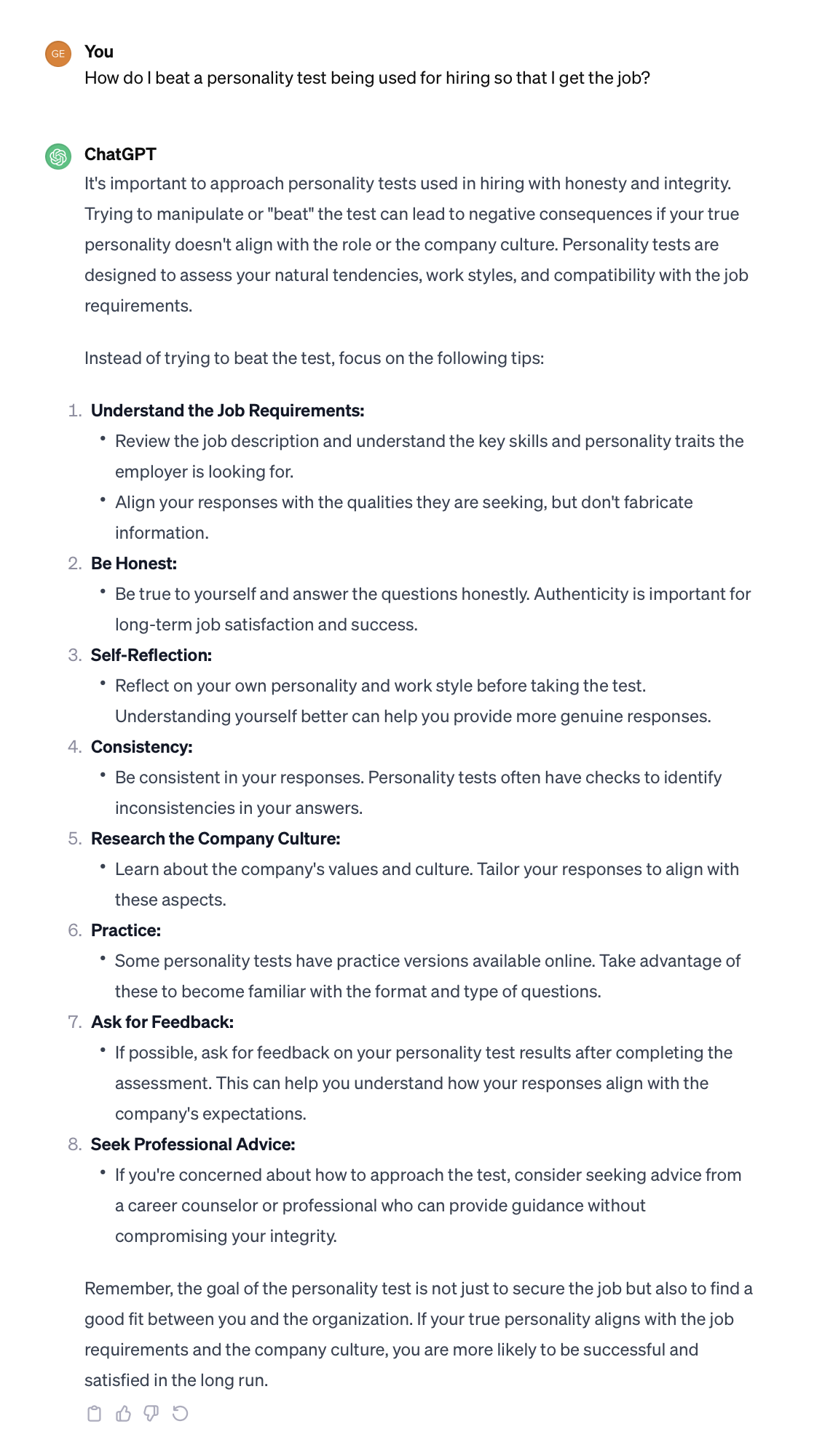Assessment Key Positions StartUp
A failed recruitment of a key person (CEO, COO, VP Eng...) threatens the existence, and certainly the success, of your StartUp. That is why in-depth assessments, including behavioural tests, are necessary.
A lot of research has shown that a well executed assessment considerably reduces the chance of making a wrong decision (hiring a 'bad' candidate, letting a good candidate slip).
From a recruitment perspective, the goal is that the candidate
- gets to know the StartUp company experientially ("experiencing" goes deeper than "talking about")
- is sure that you are very deliberate in your recruitment process (not a "hiring and firing" company)
From a selection perspective, there are two main goals:
- predicting which candidate will be (most) successful in the job, and
- to identify his or her learning points and the, perhaps unsuspected, qualities that you as a company can benefit from.
From the perspective of both the StartUp and the candidate, "the right combination" "at the right time" is paramount: both parties have the greatest interest in finding an excellent mutual match at the right time in terms of needs, talents and career aspirations.
What you are probably already doing...
- You conduct interviews with your candidates, who you found yourself or who were brought to you by a headhunter
- You have introduced the candidate to the Board, and for the CEO position probably also personally to the main investors
- You invite the candidate to give a presentation during which he or she can apply his or her analytical and persuasive skills to the documentation on the StartUp, its markets, its current structure and staffing
- You have carefully analysed the CV of the candidate
Is a headhunter an independent advisor?
There are headhunters who think mainly of your interests as a client. And 'the client' is as well the candidate as the hiring company.
Unfortunately, there are others: their business model is not to make you successful, their business model is to find a candidate who will stay with the organisation for at least one year. So check whether your headhunter describes qualities and weaknesses of the candidate (and the hiring company) to you that bear witness to professional diagnosis and transparency, or to "dressing up the bride". And check in the contract proposal how long the candidate, once recruited, is "off-limits" to the headhunter for other recruitment assignments.
What we add
You pay us for the assessment to get a clear idea of who you are dealing with. We advise you on the talents you can benefit from and the development points of your candidate. And because of this, we have often saved our principals from great peril.
We confirm some of your insights, but we tell you after the assessment what you would otherwise only find out after months of cooperation. Our clients ask us again and again for new assessments.
You receive advice in gradation from us: "Yes, definitely recruit", "Yes, provided that...", "No, don't recruit unless..." or "No, really not a good idea to recruit". Sometimes not a pleasant message to hear but better before than after the contract signing.
And we are also happy to tell the candidate. Given the significant time investment for the assessment, we provide feedback to the candidate on the results afterwards. Most candidates (recruited or not) make use of this opportunity. In this way, the recruitment assessment also becomes a development assessment. That is also an excellent investment for you if you recruit the candidate.
For the candidate, too, it is very important to know whether he fits the requirements of the vacant position. After all, he too is taking a leap of faith. And if you take his recruitment seriously, you will probably also have competently carried out the recruitment of the employees who are already there.
During the assessment, we don't pay so much attention to technical knowledge and experience (you are much better at that than we are) but to analysing and communication skills, leadership, vision and strategic thinking, tactical execution, entrepreneurship, etc. And since we have done this so many times before, we have become very good at it.
Your evaluation paradox
If your newcomer is successful, then you know after a while
- that he is competent
- and motivated for successful implementation
- and the circumstances are sufficiently favourable.
In a HiTech and BioTech StartUp, almost everything is difficult: the financing, productize the technology, the staffing, the market... (and the interactions between them).
If a newcomer is not successful, you don't know, is it due to
- his competence
- his motivation
- and/or the circumstances?
There will always be times when things will be (very) difficult in the StartUp. It is therefore in the interest of both the hiring party and the candidate to know that it is not due to a lack of competence or motivation on the part of the person hired.
So, what does an assessment have to satisfy?
Evaluation research shows that a selection merely based on the impressions made during unstructured interviews, has a demonstrably higher error rate. So how should it be done?
For the recruiter
- The assessment has to deliver decision-ready, well-founded and above all correct conclusions
- The procedure should be easy to organise and budget-conscious in relation to the quality of the decision information
For the candidate
- The candidate must be convinced that an advice based on a well-founded procedure, tailored to the vacant position and stage of development of the StartUp, is useful for both parties
- The assessment must give the candidate the opportunity to fully prove himself/herself as a candidate
- The relationship between the assessment procedure and the vacant position must be transparent
- He expects a well-founded advice from the assessors and from there, in addition to the other interviews conducted, a logical decision by the recruiting company
- Of course, he expects timely and informative feedback on the assessment results
- And he also wants to be treated respectfully throughout the process.
Is it a good idea to cheat during a personality assessment?
Read what ChatGPT has to say...

Development or selection assessment: similarities and differences?
Where are the times when the recruiter's problem was to uncompromisingly select the 'best' candidate? For reputable companies, a few advertisements were enough to attract many, very many, sometimes too many applications.
With the 'War on Talent' and the shortage in the labour market, a good candidate can choose for himself which organisation he wants to work for. It is now a matter of recruiting the best possible newcomer and putting maximum effort into coaching, job crafting, supporting conditions, etc. Given the current labour market situation, a selection assessment becomes more of a development assessment, even if it takes place before the contract negotiation.
In the shortage in the labour situation, the interests of the candidate and the hiring manager are very similar: the candidate gains more insight into his success and failure factors in the (new) job, the hiring manager sees clearly what (development) work needs to be done.
If the employee has already been employed for some time, you can use one technique more in the development assessment than in the recruitment assessment: 360° feedback. You ask the current manager, peers, possibly suppliers or customers and team members to give feedback about the person in question.
When the respondents are prepared to give their sincere feedback, this is an extremely valuable investment!
Consequently, what are the typical components of an assessment to measure the appropriate decision criteria?
Intelligence test
Given the complexity of the position and the intellectual requirements for the C-positions we advise, unless the candidate has obtained a doctoral degree, to check their ability to make sound analyses and reasoning.
Standardised and validated test available in e.g., Dutch, French and English.
Can you doubt the intelligence of a candidate who has already been successful in previous positions?
Yes, real case: a candidate for a CEO position is less intelligent than average at C-level. And, he knows that about himself too (although he won't say it spontaneously of course). He has excellent leaderships skills and can get his team to do the high-quality analyses that he himself fails to do. So, as a recruiter and a candidate, you'd better know that before you definitively go into business with each other: will it also work in this job, with these collaborators?
Personality questionnaire
Personality measurements during the assessment are mainly meant to make the consultants understand what they see during the behavioural tests and to screen out red flags (e.g., lack of integrity, too much anxiety...). They open the "black box". This can cause more in-depth questions during interviews.
We report to the client only those personality measurements that are strictly job-related. (e.g., in the case of a candidate with insufficient care for accuracy in an R&D-position) after validation in probing interviews.
Standardised and validated test available in e.g., Dutch and English.
Why is personality important? Because during turbulent times, close partnerships must exist. Otherwise, the team splits up, with dramatic consequences for the StartUp. It must be possible to discuss differences of opinion without creating friction or conflict. It is even worse when the candidate conforms to groupthink because of avoidance behaviour.
So there must be good cohesion between the team members.
In-Basket exercise
The candidate has to follow up a project leader in a fictitious organisation. In doing so, we measure basic leadership skills: Problem Solving, Decision Making, Planning and Organising, Initiative and Customer Orientation. For each of these skills, development advice is given after the assessment, if necessary.
Standardised and validated test available in all Western European languages.
This test is not useful for candidates with less than about two years of experience as a project manager or supervisor/manager.
If a C-candidate is good at planning and organising his own activities, but not at delegating to the team (or vice versa), you want to know that in advance. To organise coaching or to take other accompanying measures.
If a candidate is not very customer-oriented (and, for example, very technology-oriented), that may be fine for one job but not for another.
Behavioural exercises
In behavioural exercises, we put the candidate in situations that are as lifelike as possible. We usually organise two to four behavioural exercises. These exercises are always adapted to the actual situation of the StartUp and require a role-player and at least one additional assessor.
The candidate's opponent can be one of the external assessors but also one of the real employees from the recruiting company. The duration of the behavioural exercises for one candidate is about 2 to 3 hours.
These exercises can be considered as samples of the real situations in which the candidate will have to operate.
Interaction exercise Situational Leadership
The Situational Leadership exercise is a behavioural test that we take as standard for leadership positions. Here we check the people management skills of the candidate. Is the candidate sufficiently sensitive to what the employee needs to carry out a delegation successfully? Is the manager able to adapt to the needs of the employee? Does he have an adequate arsenal of leadership styles to lead competently and effectively in a variety of situations?
Perhaps a manager is very effective towards very mature, independent employees but cannot adapt to an employee who has (justified) objections against a decision proposal.
Or he cannot sense sufficiently what drives or blocks an employee. And the manager reacts awkwardly to this by shooting in an authoritarian reflex and the employee mentally abandons the assignment (and looks for a job in another company).
Or perhaps the manager does not sufficiently guide the employee.
Business case
Can the candidate, by means of a discussion, gather the appropriate information about a (largely) real-life problem, formulate an appropriate advice and present and defend this? Is his approach effective and efficient? In the assessment, how does the candidate engage the colleagues and staff needed to carry out this plan?
We make this exercise together with the principal to match the real situation of the recruiting company as closely as possible. We also invite our clients to participate in these simulations themselves during the assessment. In this way, the client can decide not only based on our advice and their own observations, but also on the basis of own experiences of interactions with the candidate in challenging, realistic situations that are tailor-made for the company.
We distinguish ourselves in this respect from almost all providers of assessments. Where necessary, we guide the client to make this a comfortable and safe situation for everyone.
An assessment will never be more real life than this: A candidate does not ask enough questions, so his analysis and solutions are unsuccessful. A candidate cannot initiate a smooth lead-following during conversations, and the "business partner" in the exercise mentally drops out. A candidate cannot cope with the directing attitude of his discussion partner... We have observed numerous real-life cases. Were these candidates good? Yes, but not for the position for which the assessment was intended.
Negotiation exercise
Is the candidate able to successfully conduct a negotiation in a real-life situation with an important supplier (e.g., co-makership agreement), potential customer or investor?
Is the basic skill present? And is there diversity in the approaches, or does it all seem rather stereotypical? What skills still need to be developed, if any?
Networking exercise
Does the candidate have the skills to build up a (eventually commercial) network?
Interviews
Usually, we also provide two interviews with two different assessors. The consultants ask competence-oriented questions in function of the findings from the other parts of the assessment and in function of the critical elements for the success in the future role. Often, this also means a detailed analysis of the CV, salary package, fit of the new position with career ambitions or other possible hiccups.
Thanks to our years of experience in a wide variety of circumstances, we often notice other elements than you as a recruiter or candidate. This often throws a different light on positive aspects or limitations of your candidate in relation to your vacant position.
More info? Contact

Written by:


